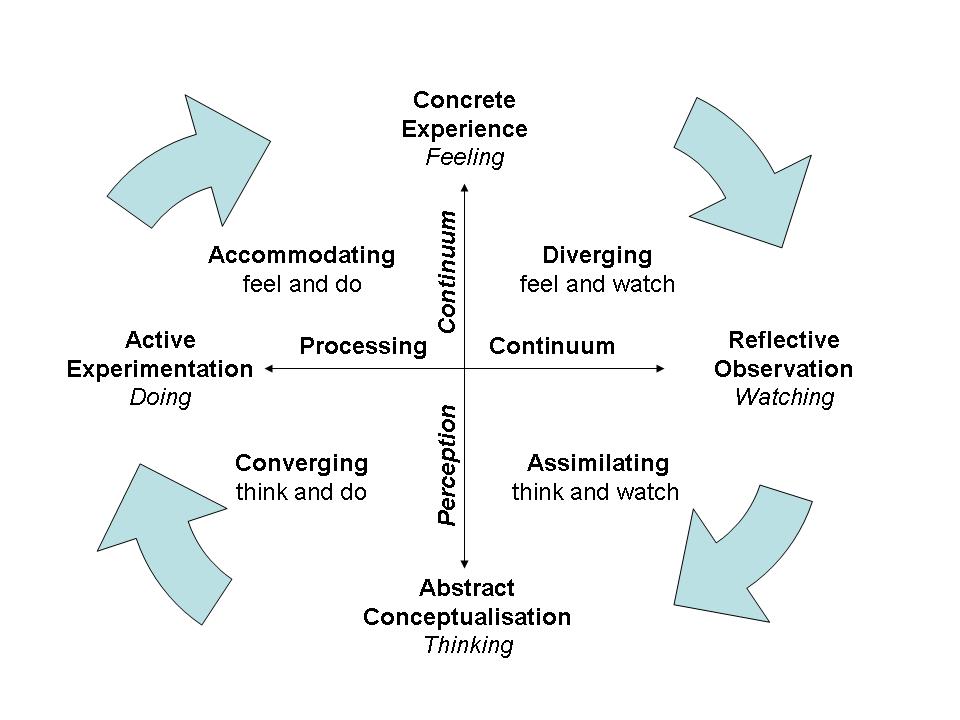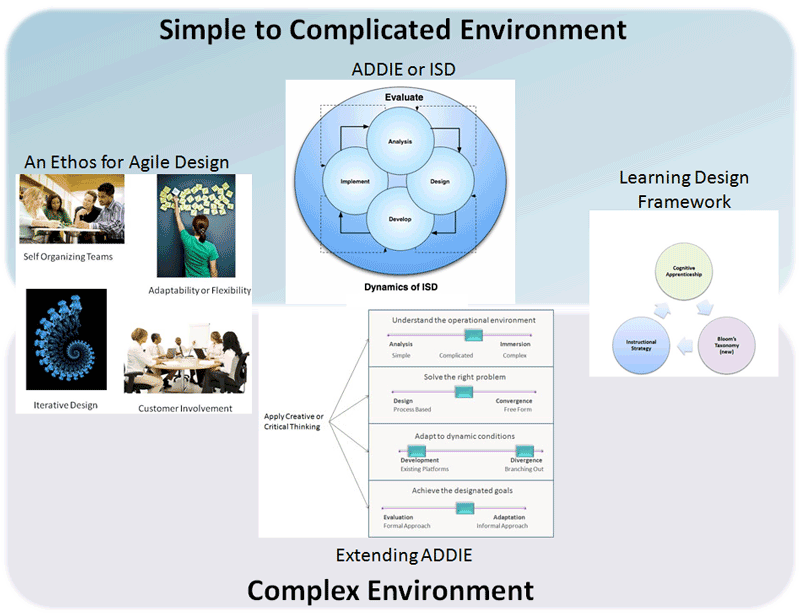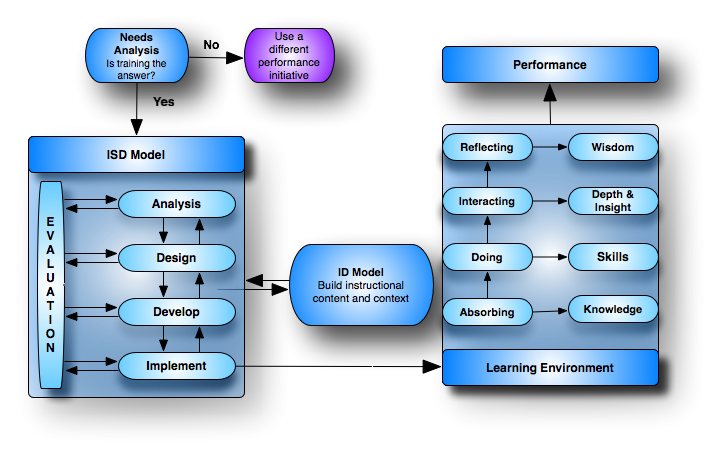Kolb's Learning Styles
David Kolb's Experiential Learning: Experience as the source of learning and development (1984) theorized that four combinations of perceiving and processing determine four learning styles that make up a learning cycle. According to Kolb, the learning cycle involves four processes that must be present for learning to occur:
- Diverging (concrete, reflective) - Emphasizes the innovative and imaginative approach to doing things. Views concrete situations from many perspectives and adapts by observation rather than by action. Interested in people and tends to be feeling-oriented. Likes such activities as cooperative groups and brainstorming.
- Assimilating (abstract, reflective) - Pulls a number of different observations and thoughts into an integrated whole. Likes to reason inductively and create models and theories. Likes to design projects and experiments.
- Converging (abstract, active)- Emphasizes the practical application of ideas and solving problems. Likes decision-making, problem-solving, and the practicable application of ideas. Prefers technical problems over interpersonal issues.
- Accommodating (concrete, active) - Uses trial and error rather than thought and reflection. Good at adapting to changing circumstances; solves problems in an intuitive, trial-and-error manner, such as discovery learning. Also tends to be at ease with people.

For more information, see Kolb's Learning Styles and Experiential Learning Model.



